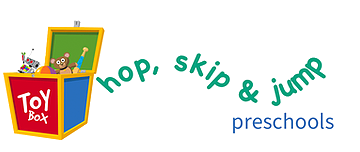Our Curriculum Supports all the Seven Areas of Development.
Mathematics
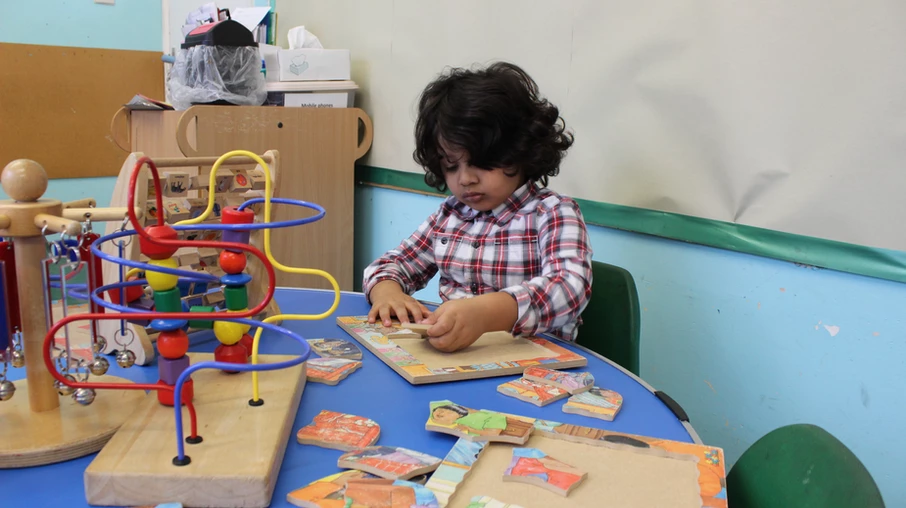
- Using numbers in role play
- Construction
- Pattern making with shapes
- Sorting and matching
Understanding of the World
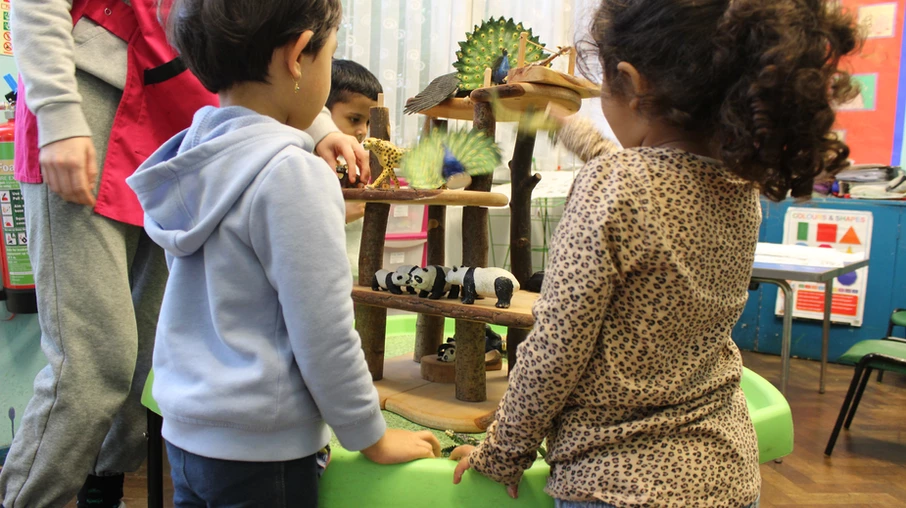
- Investigating
- Exploring
- Asking questions
- Understanding our world
Physical Development
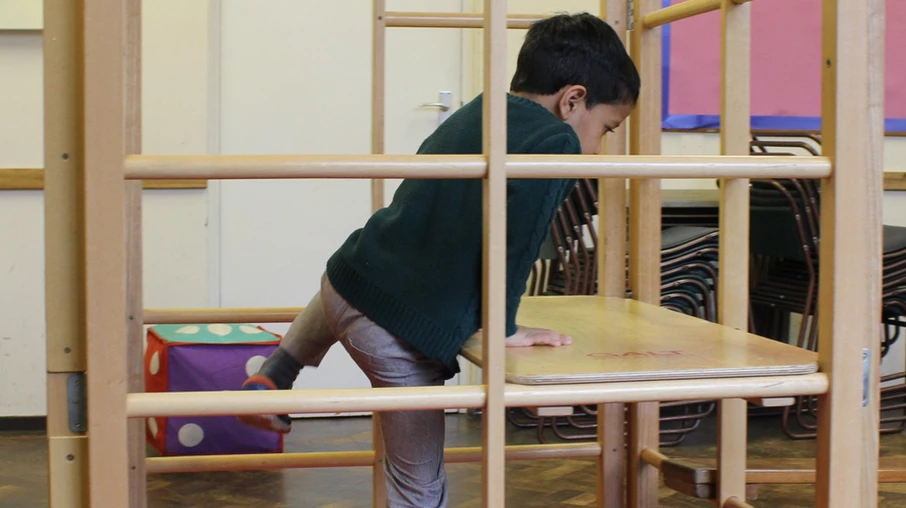
- Moving in different ways
- Moving with coordination
- Practise new skills
- Understanding good health
Personal, Social & Emotional Development
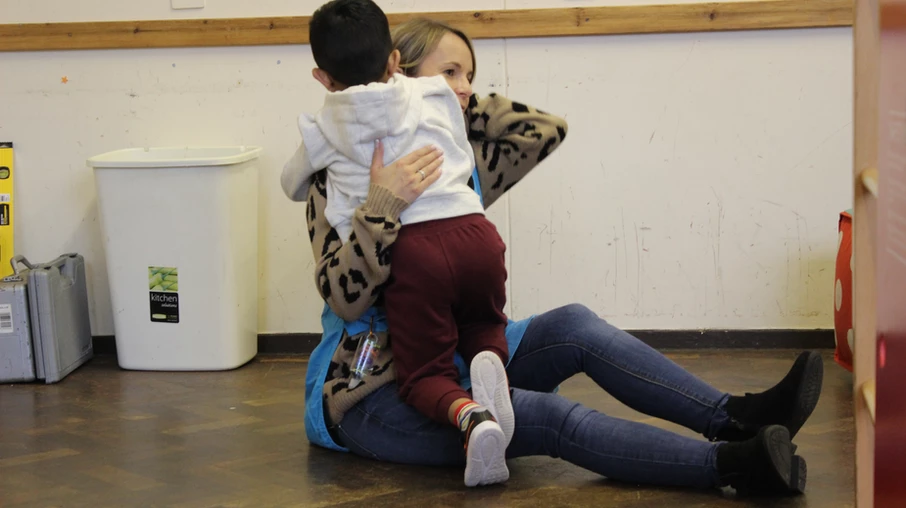
- Talktime
- Building self esteem
- Significance
- Self-esteem
Communication & Language
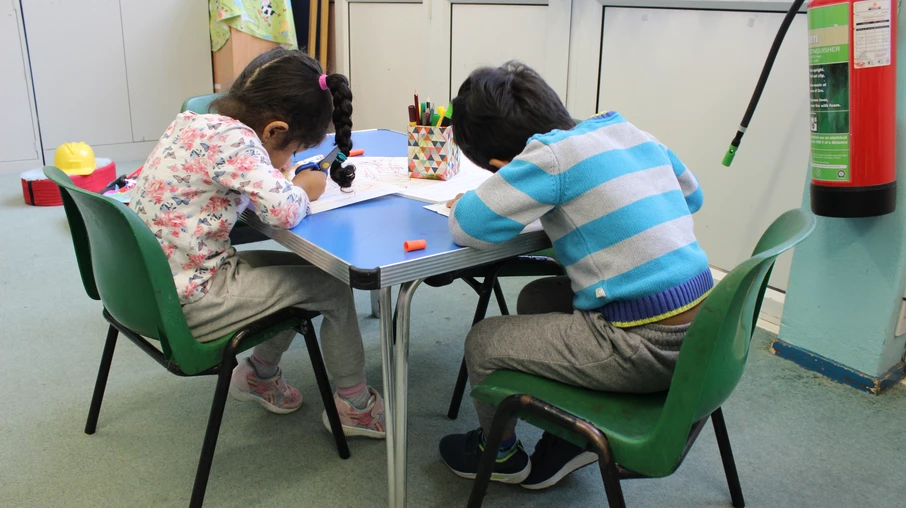
- Reasons for writing
- Role play
- Mark making activities
- Stories, puppets and props
Literacy
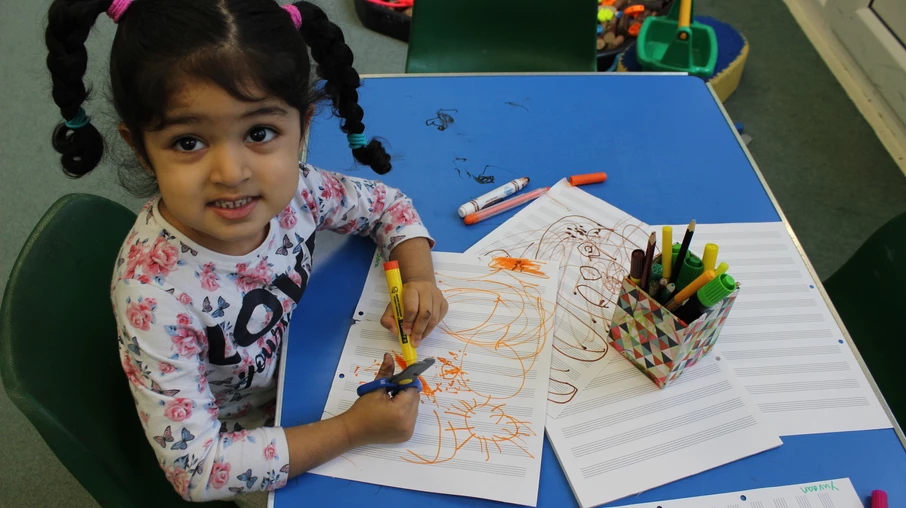
- Reasons for writing
- Letters and sounds
- Mark making
- Forming shapes and letters
Creative Development
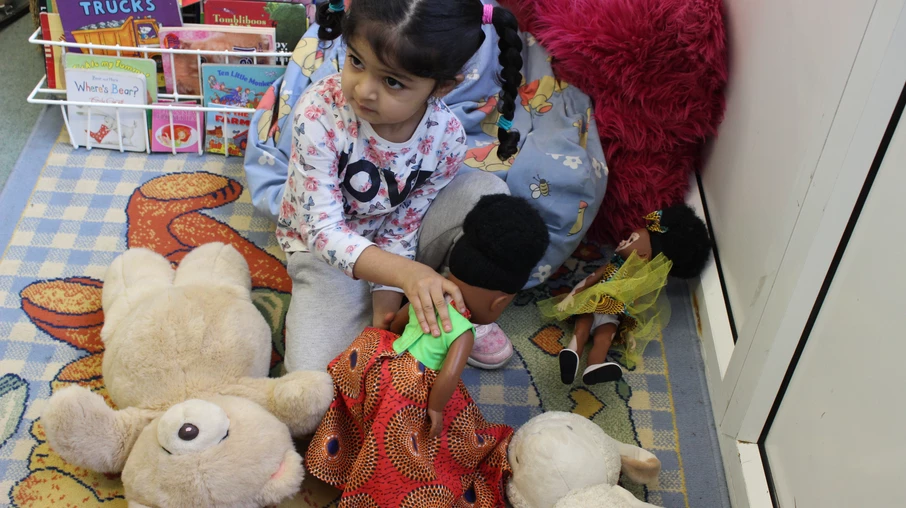
- Explore colour, texture & space
- Enjoy & respond to music
- Playing together
- Imagination in art & music
In General
General Information
- Good to know
Starting at our setting
We explain and share our settling in process with the parents. Children are settled sensitively with parental support and involvement over an agreed period of time that is at least a fortnight in duration (in line with the needs of each individual child). Some children take only a week to settle depending on how many days he/she attends per week. We want your child to feel happy and safe with us. To make this happen our staff will work with you to decide how to help your child to settle into the setting. On the first day of your child with us the key person will complete a form called ‘All about me’ so that the key person knows the child and the family well. On this day parents can stay for an hour with their child.
Key persons and your child
Our setting has a key person system. This means that each member of staff has a group of children for whom she/he is particularly responsible. Your child’s key person will be the person who works with you to support your child’s learning and development. You can find key person list on our main information board.
Illness and medication
If your child is unable to come to the school due to illness or any other reason please call us on the first day of your child absence.
Please inform us if you are taking your child on a holiday.
We can only administer doctor’s prescribed medicine to your child. Please note that child’s name must be on the medicine.
Child Protection
We are obliged to inform Children’s Services of any concern we may have that a child may be neglected, at risk or has been abused. The safety of children is paramount and may include a duty to share confidential information if needed.
All our staff members have up to date Safeguarding training and are aware of child protection policy and procedures
Sandra Henry is our designated Safeguarding Lead.
Toilets/ Toilet Training
Children have access to dedicated toilets as they need. They are encouraged to use the toilets regularly during the session.
If your child is still in nappies or in the process of learning to use the toilet, please bring a named bag containing nappy changing supplies and spare clothes. Children also need spare clothes as they are engaged in messy/water play or might have an accident. We do have nappy changing facilities on site and encourage toilet training as soon as possible.
Behaviour Management
Children’s behaviour is managed in partnership with parents. We prevent unwanted behaviour by building a good relationship with the child, helping the child to develop empathy, by talking calmly and explaining the reasons why a particular behaviour is not acceptable and giving them tools to self-regulate their behaviour.
Special needs
We welcome all children regardless to their additional needs. Our staff team of are committed to ensure inclusive practice for the children and their families.
We have a designated Special Educational Needs Co-ordinator (SENCO) on site at all times.
Please speak to her if you would like to discuss any concerns you may have.
Children’s development and learning
Children start to learn about the world around them from the moment they are
born. The care and education offered by our setting helps children to continue to
do this by providing all the children with stimulating activities that are appropriate
for their age and stage of development.
Our setting follows Early Year Foundation Stage curriculum. This curriculum divides children’s learning and development into seven areas. These are separated into Prime and Specific areas of learning.
Prime areas are those which are building blocks and are fundamental throughout the curriculum. They are;
- personal, social and emotional development;
- communication and language development;
- physical development
Specific areas grow out of the prime areas. They include essential skills and
knowledge for children to participate successfully in society. They are:
- mathematical development
- knowledge and understanding of the world
- literacy
- expressive art and design
Personal, Social and Emotional Development
This area of children’s development covers:
- having a positive approach to learning;
- having confidence in themselves and their ability to do things, and valuing
their achievements;
- being able to get on, play and make friends;
- becoming aware of other’s feelings and developing empathy;
- being independent and look after their personal needs;
- to respect other people’s ways of doing things and show good behaviour.
Communication and Language
This area of children’s development covers:
- being able to communicate and understand what others say;
- being able to use words to describe their experiences;
- Joining in with story time and singing time;
Literacy
This area of children’s development covers:
- listening to – and talking about – stories;
- knowing how to handle books and show interest in them;
- knowing the purposes for which we use writing and
making attempts at writing;
Mathematics
This area of children’s development covers:
- To be able to say numbers in order 1-10;
- building up ideas about how many, how much, how far and how big;
- building up ideas about patterns, the shape of objects and parts of objects,
and the amount of space taken up by objects;
- starting to understand that numbers help us to answer questions about how
many, how much, how far and how big;
- building up ideas about how to use counting to find out how many; and
being introduced to finding the result of adding more or taking away from the
amount we already have.
Understanding the World
This area of children’s development covers:
- finding out about the world and how it works;
- learning how to choose – and use – the right tool for a task;
- learning about computers, how to use them and what they can do;
- starting to put together ideas about past and present and the links between
them;
- beginning to learn about their locality and its special features; and
learning about their own and other cultures.
Physical Development
This area of children’s development covers:
- gaining control over the large movements that they can make with their
arms, legs and bodies, so that they can run, jump, hop, skip, roll, climb,
balance and lift;
- gaining control over the small movements they can make with their arms,
wrists and hands, so that they can pick up and use objects, tools and
materials;
- learning about the importance of – and how to look after –
their bodies.
Expressing art and design
This area of children’s development covers:
- using paint, materials, music, dance, words, stories and role-play to express
their ideas and feelings;
- becoming interested in the way that paint, materials, music, dance, words,
stories and role-play can be used to express ideas and feelings.
Staff: Children ratio
In our setting we always maintain the ratio of adults to children that is
required by the Statutory Guidance .
Children over 3 1:8
Children under 3 1:4
Children under 2 1:3
We also have volunteer parent helpers or students where possible to complement these ratios.
Tapestry
We record children’s observations on an online journal called Tapestry. When your child starts with us you will be provided tapestry log in details so that you could have daily access to your child’s learning journal.
Parents are encouraged to post their child’s observations from home on the Tapestry.
Parents can make a request in writing if they wish us to email them their child’s online learning journal in a PDF version no later than 6 weeks before child’s last term with us.
How parents take part in the setting
Our setting recognises parents as the first and most important educators of their
children. All the staff see themselves as partners in providing care and
education for your child. There are many ways in which parents take part in making
the setting a welcoming and stimulating place for children and parents, such as:
- exchanging knowledge about their children’s needs, activities, interests and
progress with the staff;
- posting their children’s observations on Tapestry;
- helping at sessions of the setting;
- sharing their own special interests with the staff and the children;
- helping to provide, make and look after the equipment and materials used in
the children’s play activities;
- taking part in events and informal discussions about the activities and
curriculum provided by the setting;
- building friendships with other parents in the setting.
Arrival and departure
Please bring your child on time as it can be disruptive for other children who are already engaged in circle time/activities. Please collect your child on time as this can be distressing for your child and disruptive for the routine of the setting.
Similarly please try not to collect your child early unless there is a valid reason.
Don’t forget to give your password if someone else is collecting your child.
Celebrating festivals
We celebrate festivals from different cultures. If you do not want your child to take part in any of these celebrations please let the key person know.
Policies
Copy of the setting’s policies is available to read at any time. Please ask a member of staff if you wish to read them.
The Hop, Skip and Jump preschool nearest to East Croydon rail and tram services, is held in United Reform Church in Addiscombe Grove, CR0 5LP.
Our Location
The Hop, Skip and Jump preschool nearest to East Croydon rail and tram services, is held in United Reform Church in Addiscombe Grove, CR0 5LP.
